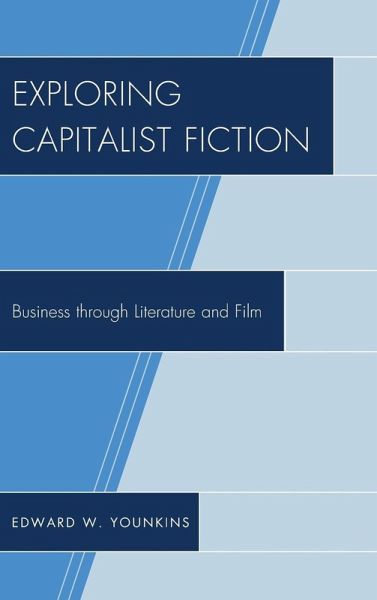
Exploring Capitalist Fiction
Business through Literature and Film

PAYBACK Punkte
69 °P sammeln!
In Exploring Capitalist Fiction: Business through Literature and Film, Edward W. Younkins proposes that the use of imaginative literature to portray and explain the behavior of individuals in business is a method that is richer and more realistic than what is presented in journal articles, textbooks, and even case studies.














